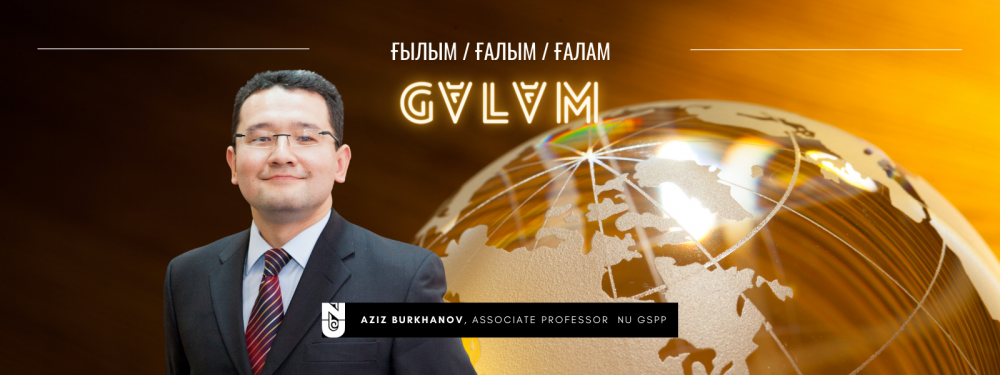‘Galym-Galam’: Aziz Burkhanov, NU GSPP
Our next ‘Galym-Galam’ rubric guest is Aziz Burkhanov, NU GSPP Associate Professor. Professor Burkhanov graduated from al-Farabi Kazakh National University, obtained a Master’s degree in France, and then worked as a researcher and consultant on political analysis at the Institute of World Economy and Politics, as well as at IHS Cambridge Energy Research Associates (CERA). In 2014, Professor Burkhanov received his Ph.D. from Indiana University and joined NU.
Can you please tell us about your research interests? What research projects have you been involved in?
My research interests include national identity and nation-building theories and practices in Central Asia, language policy, and public discourse around national identity issues. Projects that I was involved in the past included discourse analysis on national identity issues, language, perception of “other”, youth and national identity, and societal perceptions on the government’s nation-building policy in Kazakhstan. I also try to explore the nation-building policies of Kazakhstan’s government from a public policy perspective. Lately I became more involved in exploring comparative public policy issues, policy-making styles in different countries as well as policy implications of identity, language and citizenship in multiethnic societies.
Where does you interest in identity studies stem from?
I was always interested in how people identify themselves and was fascinated by how complex and contextual a sense of identity is; that is, in different contexts some layers of identity may become more important than others. It was also interesting to explore how a sense of identity can be shaped and expressed by the state, media, and societal discourses. These discourses may play a crucial role in the society since they can highlight existing polarizations and cleavages along social, political, cultural, religious, and linguistic lines. It is via these media and public discourses members of the society can create (sometimes unintentionally) a sense of “us versus them”. In ethnically diverse societies, public discourses can also reflect different perceptions and stereotypes that various ethnic groups possess about each other. Studying these narratives would hopefully help to create an inclusive and harmonious nation-building policy in the country.


